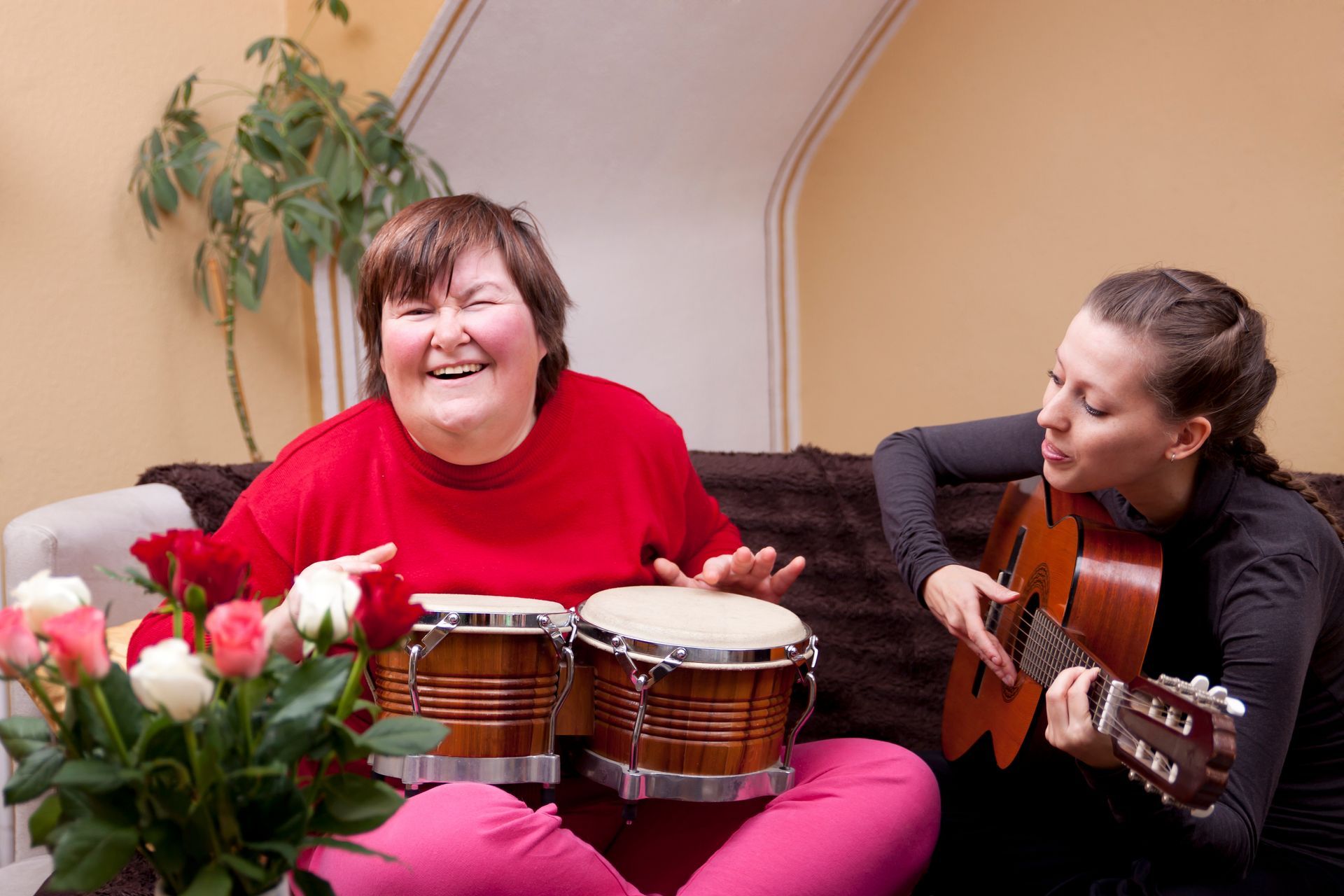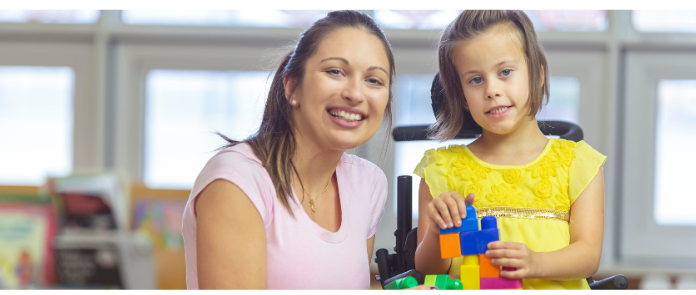The Power of Music Therapy: Sensory and Regulation Songs as a Part of Therapy

In the diverse field of allied health, music therapy has emerged as a powerful tool for enhancing emotional, cognitive, and social well-being. At helpz, we are committed to exploring and integrating innovative approaches that support our participants in achieving their best possible outcomes.
One such approach is the incorporation of sensory and regulation songs within behaviour support therapy.
What is music therapy?
Music therapy involves using music to address physical, emotional, cognitive, social, and communication needs. Through creating, singing, moving to, and/or listening to music, participants can achieve therapeutic goals that are tailored to their individual needs. Furthermore, music therapy is particularly effective for individuals with disabilities, as it offers a non-verbal form of expression that can help bridge communication gaps
The role of sensory and regulation songs
Sensory and regulation songs are specially designed musical experiences that cater to the sensory needs of individuals, helping them regulate their emotions and behaviours. These songs are structured to engage multiple senses, providing a calming, or stimulating effect depending on the desired outcome and sensory needs of the participant in the moment.
Sensory songs: These are songs that combine various sensory and musical elements such as rhythm, melody, and movement, to engage the auditory, tactile, visual, vestibular, and proprioceptive senses. Sensory songs can be beneficial for individuals who experience sensory processing challenges, as they help in providing the ideal amount of sensory feedback to meet a participant’s unique sensory needs, within a safe and specifically designed environment. In this way, sensory songs can be utilised to support regulation and ultimately lead to a reduction in challenging behaviours over time.
Regulation songs: Regulation songs are designed to help individuals manage their emotions and behaviours by providing a predictable and repetitive structure designed to be soothing. These songs often include calming melodies and rhythms that promote relaxation and reduce anxiety. A regulation song might be used to help a child calmly transition from one activity to another or to de-escalate and return to a calm emotional state after a period of heightened arousal.
Incorporating music therapy into behaviour support
Behaviour support therapy focuses on understanding and modifying challenging behaviours, often through individualised strategies that take into account the participant’s unique needs and circumstances. Music therapy, and specifically sensory and regulation songs, can be seamlessly integrated into this process to enhance outcomes.
- Enhancing emotional regulation: Music therapy can help individuals with emotional regulation by providing them with tools to explore, release, and manage their emotions. A personalised or familiar regulation song can be introduced as part of a behaviour support plan to help a participant calm down during moments of distress. Over time, the participant may learn to associate the song with relaxation and use it independently as a coping mechanism.
- Supporting communication: For participants who have difficulty expressing themselves verbally, music therapy can offer an alternative means of communication. Sensory songs can help participants express emotions that they might struggle to articulate in words. This can be especially useful in behaviour support therapy, where understanding a participant’s emotional state is key to developing effective interventions.
- Promoting positive behaviours: Music can be a powerful motivator for positive behaviour. By incorporating sensory and regulation songs into a behaviour support plan, therapists can use music as a reward or as a tool to encourage desired behaviours. A favourite sensory song might be played as a reward for completing a task, reinforcing positive behaviour through a medium the participant enjoys. Or a regulation song may be used to distract a participant from engaging in challenging behaviours when heightened and encourage them to practise their deep breathing instead.
- Creating a therapeutic environment: The use of music in therapy sessions can create a calming and supportive environment, which is helpful to learning and behaviour change. Sensory and regulation songs can be used to set the tone for a session, helping participants feel more comfortable and engaged in the therapeutic process. Furthermore, music as a medium is flexible and can be adapted to suit individual needs as they arise – ensuring accessibility for all.
To see an example of a sensory and regulation song in action, check out our music therapist Tessa singing "Little Snowflake" here. This is a perfect example of how music can be used to support sensory regulation and emotional well-being. In this example, Tessa incorporates several sensory elements to encourage relaxation through mindful listening, singing, and/or movement along to music.
At helpz, we recognise the importance of a holistic approach to therapy that addresses the unique needs of each participant. By incorporating music therapy into behaviour support therapy, we can offer a more comprehensive and effective approach to helping our participants achieve their goals. Whether it’s through calming regulation songs or engaging sensory songs, music therapy provides a valuable tool in the journey towards improved emotional and behavioural regulation.
If you’re interested in learning more about how music therapy can benefit you or a loved one, our team at helpz is here to help. Contact us to discuss how we can tailor our services to meet your specific needs and goals.
News & Insights
Check Our Latest Resources


Ready to use helpz?
helpz can be for:
Participants with an approved NDIS plan
Anyone without an NDIS plan
Organisations requiring disability support services
Get in touch with us to discuss your needs and find out how helpz can support you or your loved one.
Useful links
Contact helpz
0477 112 900
contact@helpz.com.au
Level 9
56 Clarence Street
SYDNEY NSW 2000

helpz recognises the objectives of the Convention on the Rights of Persons with Disabilities. We also acknowledge the traditional custodians of country throughout Australia, and their continuing connection to land, sea and community. We pay our respects to them and their cultures, and to elders past and present.
©2025 helpz Pty Ltd | All Rights Reserved.




